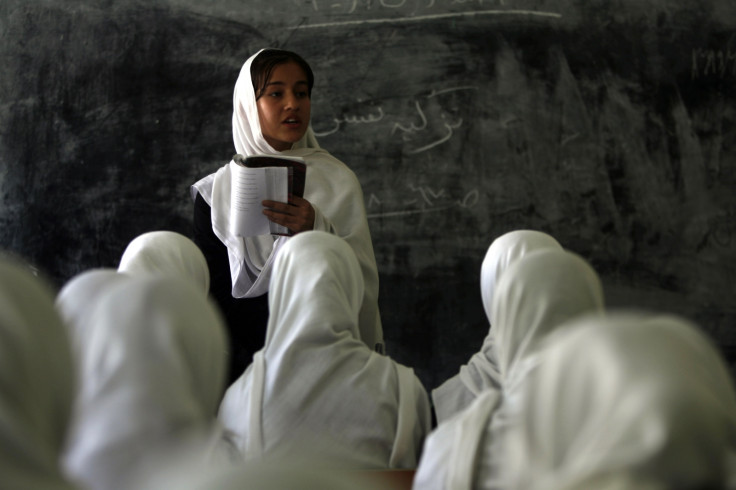Nearly 80 school girls poisoned in two separate attacks in Afghanistan
There is still no information on how the girls were poisoned and the exact reasons behind the attack.

In a shocking incident reported from Afghanistan, nearly 80 schoolgirls were poisoned and hospitalised in two separate incidents reported over the weekend.
According to local media reports, the attacks took place in the Sangcharak district of Sar-e-Pul province. As many as 60 students were poisoned at Naswan-e-Kabod Aab School, while 17 were poisoned at Naswan-e-Faizabad School.
"Both primary schools are near each other and were targeted one after the other," The Associated Press quoted a local official as saying.
All the students were immediately rushed to local hospitals, and are now doing fine. It is being reported that the attack was planned by someone "with a grudge" and that the person in question paid a third party to carry out the attacks.
There is still no information on how the girls were poisoned and the exact reasons behind the attacks. The investigation into the case is still underway.
It also needs to be noted that the Taliban has banned girls from attending senior secondary and higher secondary schools. Therefore, the girls who were poisoned may have been in grades one to six.
The Taliban barred girls from attending secondary schools after taking over Afghanistan in August 2021, while the ban on higher education was announced in December last year.
The regime is gradually erasing women from public life in Afghanistan. They also banned women from pursuing education during their rule in the 1990s. Women have been denied even the most basic rights.
Neighbouring Iran has also seen similar attacks over the last few months. Earlier this year, the Iranian government was forced to launch an inquiry after several reports claimed that hundreds of schoolgirls were being poisoned for taking part in protests against the mandatory hijab policy.
The reports of the attack emerged from the holy cities of Qom and Borujerd, but mainly from Qom, which is home to Iran's clergy and theological seminaries. The investigation into the matter was launched only after parents held protests outside the governor's office in Qom.
The students were found to have symptoms such as shortness of breath, nausea, and vertigo. They had also reportedly complained of experiencing "unpleasant" odours on school premises. Several videos of schoolgirls coughing and struggling to breathe as they were escorted out of school to be taken to hospitals had made it to social media platforms. However, no deaths were reported in this case.
The reports of schoolgirls being poisoned came against the backdrop of massive protests in Iran over the death of a young woman named Mahsa Amini.
It may be remembered that the protests started back in September following the death of Amini. She died shortly after being beaten while in the custody of the country's morality police, who arrested her for breaching laws pertaining to the hijab. Her death sparked protests all over the country as well as in Iranian communities abroad.
Afghanistan and Iran not only share borders but also their regressive attitudes towards women and their rights. Iran is still seeing some protests against the restrictions, while Afghanistan has barred people from even protesting.
Women face harsh punishment if they violate any of the restrictions imposed by the Taliban. The group had initially claimed that they would adopt a moderate approach this time, but that did not happen. The Taliban are taking Afghanistan back to the 1990s when women were required to wear an all-encompassing blue burqa.
"Women and girls have progressively had their rights to fully participate in education, the workplace and other aspects of public and daily life restricted and in many cases completely taken away," read an excerpt from a report by the United Nations mission in Afghanistan (UNAMA).
© Copyright IBTimes 2025. All rights reserved.






















